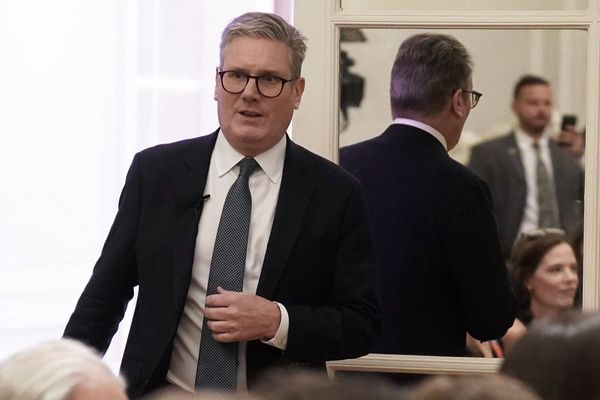
Opposition parties have called on Downing Street to provide answers over Rishi Sunak’s family financial interests as the Guardian discovered that previous ministerial registers made no mention of his wife’s stake in a childcare firm, even though it began in 2019.
The prime minister could be ordered to apologise to the House of Commons if an inquiry announced on Monday into his declarations about the investment finds he breached the code of conduct for MPs.
Companies House records show Akshata Murty first took a stake in Koru Kids, one of six childcare companies that stand to benefit from a policy announcement in last month’s budget, in March 2019, when she held 20,000 shares in the firm.
While the register of ministerial interests has not been updated for nearly a year following the resignation of Boris Johnson’s adviser on interests, the six registers published since March 2019, when Murty took the stake, have no mention of it.
The first of these does not refer to Murty at all, while the five subsequent versions, the last of which was published in May 2022, says only that Sunak’s wife “owns a venture capitalist investment company, Catamaran Ventures UK Ltd”.
The records for Koru Kids show Murty owns the shares in her name, not that of the investment company. The most recent records show she still has 20,000 shares.
Downing Street has said it cannot comment while the inquiry is under way, beyond reiterating that the shareholding had been “transparently declared as a ministerial interest”.
Unlike the parallel register of MPs’ interests, not every interest declared by ministers to the relevant civil service head of their department is publicly listed, as it is up to the adviser on ministers’ interests, who is now Laurie Magnus, to decide whether this is necessary.
It is therefore possible that Sunak declared the shareholding in Koru Kids but that Mangus’s predecessors, Christopher Geidt and Alex Allan, who between them held the role until June last year, thought it did not need to be published.
Angela Rayner, Labour’s deputy leader, said: “Rishi Sunak should have declared his financial interests as a minister, chancellor and prime minister, as is required by his own ministerial code. But with no list of interests for nearly a year, his failure to come clean on what he declared gives the impression he’s got something to hide.
“He could clear it up by simply saying when and how he has declared these potential conflicts of interest and whether steps have been taken to manage them in line with the code.”
Daisy Cooper, the Liberal Democrat deputy leader, called for the rules to be changed and for Sunak to provide clarity.
“Rishi Sunak needs to come before parliament and explain why this wasn’t featured in the previous registers of ministerial interests,” she said. “It is absurd that the rules mean that government ministers can currently get away with publicly declaring less than a backbench MP.
“We need a total overhaul of the system, to ensure that the ministerial register of interests is regularly published and has more rigorous standards. The public has a right to know.”
One difficulty for Sunak is that as part of his inquiry, the standards commissioner, Daniel Greenberg, is expected to look into whether the prime minister should have declared the interest when questioned by a committee of MPs last month, where the rules are stricter than for registering interests.
Appearing before the liaison committee on 28 March, Sunak was asked by the Labour MP Catherine McKinnell about a proposed pilot scheme to incentivise people to become childminders, with Koru Kids among six private childcare providers involved.
When McKinnell asked Sunak whether he had anything to declare in relation to the scheme, he replied: “No, all my disclosures are declared in the normal way.”
The MPs’ code of conduct states that not only must members be “open and frank” in declaring interests, but mentioning a declaration without explaining what it is “will not suffice on its own”.
If Greenberg finds Sunak should have been more open with the liaison committee, there is the option of “rectification”, where he admits fault and amends the record.
However, if the prime minister refuses this, or if Greenberg decides he has not been properly transparent, Sunak’s case could be referred to the standards committee, made up of MPs and lay members, for punishment.
A suspension from the Commons seems very unlikely – of 66 MPs suspended since 1949, only one had this happen because of a non-declaration of interests, the Conservative MP John Browne in 1990. But it is possible Sunak could be ordered to apologise.







